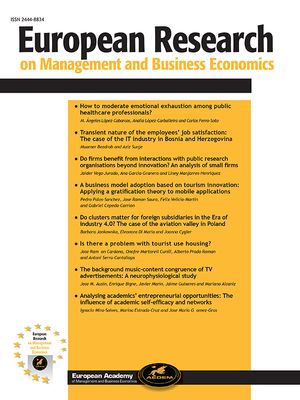Newly created enterprises increase the dynamism of economies and generate employment. Thus, they are the object of growing research interest. Forming a new company represents a decision based on both personal and subjective motives, as well as on the environment. But regardless of the origin, a founder's motivation represents a commitment to a project or business idea, and thus dictates the future success of the enterprise. This article investigates the motivational profiles of entrepreneurs, and why they choose to create new industrial enterprises. To detail this profile, we present the results of an empirical study of 101 entrepreneurs who have founded companies. The results offer significant conclusions for both academics and practitioners. Firstly, making money or being one's own boss does not appear to be sufficient reasons to create a new venture. Secondly, the motivation content of entrepreneurs influences their decision to start a business. From these conclusions, some relevant guidelines are suggested.
Debido a que la creación de empresas incrementa el dinamismo de las economías y genera empleo, está siendo objeto de un interés investigador creciente. La formación de una nueva empresa representa una decisión basada tanto en motivos personales y subjetivos como en factores del entorno. Pero, independientemente del origen, la motivación del fundador supone un compromiso con un proyecto o idea de negocio y, por lo tanto, determina el éxito futuro de la empresa. En este sentido, este artículo investiga los perfiles motivacionales de los empresarios y por qué estos optan por crear nuevas empresas industriales. Así, se presentan los resultados de un estudio empírico realizado sobre 101 emprendedores, que ofrecen conclusiones significativas tanto para los académicos como para los profesionales, entre las que destacan dos: ganar dinero o ser su propio jefe no parecen ser razones suficientes para crear una nueva empresa; y el contenido de la motivación de los emprendedores influye significativamente en su decisión de iniciar un negocio. A partir de estas conclusiones, se sugieren algunas recomendaciones.





